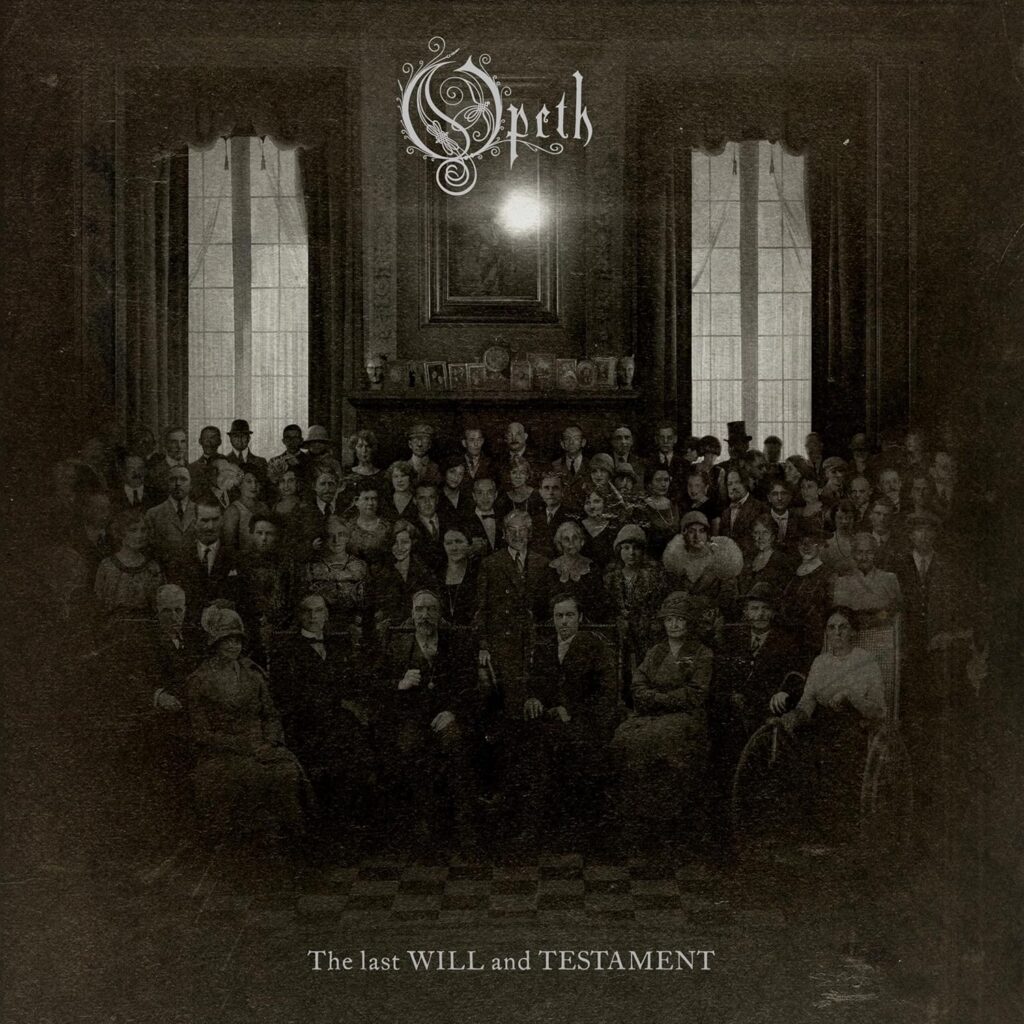
Introduction
As a longstanding Opeth fan, it’s been disappointing to see that the reappearance of death elements somewhat overshadowed the announcement of The Last Will And Testament, almost as if the last decade or so of material (including the absolutely phenomenal Sorceress and In Cauda Venenum), was some sort of aberration. Nevertheless, there is no getting around the fact that this album captures the band at their most monstrously metallic since 2008’s Watershed, although the development proves entirely organic, with the splenetic progressive elements of Heritage onwards still firmly in evidence.
The Package
As has become increasingly the case with Opeth, the album is available across a variety of formats. Alongside standalone CD and vinyl, there’s also a CD – Blu Ray digipack, and a deluxe boxset featuring CD, Blu ray, coloured vinyl and, somewhat thoughtfully, a fountain pen and ink set. Given the themes, it’s a particularly nice touch, and it’s certainly a tempting offering.
This review is based upon a digital stream of the CD edition.

The Album
Of course, this being Mikael Akerfeldt, he’s not going to make any of this too easy to follow. Even the titles defy convention, labelled with simply a § symbol and a number, making casual discussion of the album surprisingly tricky. The album opens with §1. Close your eyes, and it could easily be drawn from any of the band’s more recent albums, the jazzy tempo and liquid guitar paving the way, or so it seems, for an energetic prog workout. Don’t be fooled, however, for Mikael is merely toying with the audience, suddenly unleashing a guttural roar that sweeps everything before it. What follows, a five-minute melding of Opeth’s storied past and epic present, sets the scene for an album that feels like a summation of the band’s career to date. Following a short orchestral coda, §2 positively erupts from the speakers, the savage riffs harking back to Blackwater Park, before the band sidestep into Aryeon territory, helped no end by additional vocals from Europe’s Joey Tempest. Heavier and yet somehow more progressive, it’s a remarkable piece of music, and the band sound utterly invested in every raging note. Barely pausing for breath, we’re into the acrobatic §3, which finds Opeth sounding remarkably vital even as they plunge headlong into their third decade. Yet, something even more special awaits, as they wrap up the first half with §4, a schizophrenic masterpiece that not only showcases the depth of production, but also nods to the theatricality of Gabriel-era Genesis, with its multiple voices and music box elements. There’s even room for a little Jethro Tull, as Ian Anderson steps in to add a touch of eccentric class to proceedings. With his flute gliding across the eye that lies at the heart of this sonic storm, it only adds to the sense that you’ll soon be deposited in Oz, once the prevailing winds have abated.
Opening the second half, the lengthy §5 draws from the work of Jerry Goldsmith, conjuring up a shimmering orchestral backdrop that neatly frames the band’s hard-edged and jazzy prog. A track that has everything to offer, from brutal death metal and Eastern themes to beguiling synth elements, in the hands of anyone else it would be an inchoate mess, but Mikael plays with these things in his sleep, and the results are absolutely astonishing. Led by the near-miraculous drumming of Waltteri Väyrynen, here making his recording debut with the band, §6 is more firmly progressive, the multitracked vocals and airy melodies somewhere between Deliverence-era Opeth and Pink Floyd. With some suitably exercised keyboards courtesy of Joakim Svalberg, it’s a flight of fantasy that keeps you guessing throughout, right up to the beautifully bluesy solo that sees it out. The surprisingly nimble §7 is built around a spidery riff woven around the subdued vocals, only for Ian Anderson to return with both flute and a spoken word passage, recalling, for all the world, the sinister machinations of Dr Moriarty and his evil flautist in The Adventures Of Sherlock Holmes. It says much of the power of the music that it can evoke such an image and, while each individual listener is liable to place their own personal spin on this remarkably enigmatic piece, there’s no question that this is dream fodder. Concluding the album, A Story Never Told is blissfully enigmatic, the calmer pace suiting the song’s position as curtain closer. With Ian Anderson once again adding flute, it provides the album with a reflective finale that ensures you’ll want to undertake this most varied of sonic journeys again and again.
The Last Will And Testament
Although The Last Will And Testament does reintroduce heavier elements, this is not a case of “Opeth return to heavy roots” or anything so trite. Rather, it’s the natural evolution of the musical journey the band has been on since its inception. Far from dialling back the progressive elements of more recent works, The Last Will And Testament elevates them further, adding aspects of King Crimson, Ayreon, Jethro Tull, and even Jeff Wayne to a potent brew that already included Pink Floyd, Camel, and Genesis. Alongside that heady mix, the death metal elements neatly slot, adding depth and texture without ever taking over. The result is a mesmerising album that takes the listener on a journey, providing a welcome distraction from the everyday world and, quite possibly, standing as the finest album to which Opeth have yet put their name. Epic in every sense of the word, The Last Will And Testament is a richly rewarding experience. 10/10



